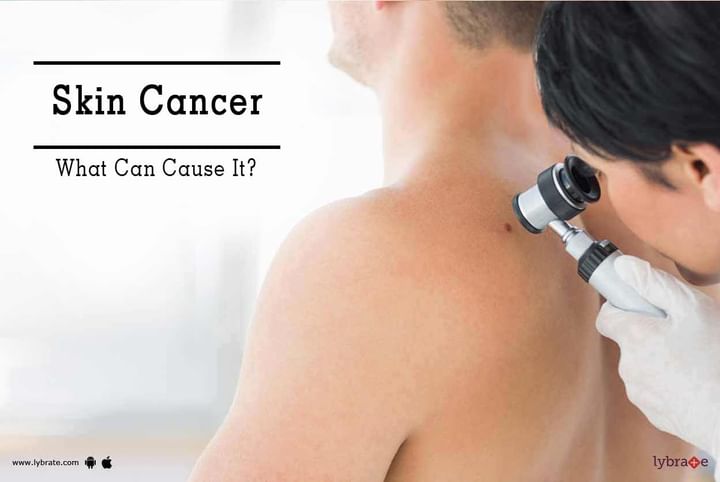Skin Cancer - What Can Cause It?
Skin cancer is a condition with abnormal and cancerous skin growths. This often develops due to the overexposure of skin to the rays of the sun. The three main types of skin cancer include basal cell carcinoma, squamous cell carcinoma and melanoma. Skin cancer affects those areas of skin which remains sun-exposed including ears, neck, chest, scalp, lips, face, hands, arm and legs. It can also develop on those areas of skin that are not exposed to sunlight like beneath toenails or fingernails, on palms and on the genital area.
Risk factors associated with skin cancer
Here are some of the factors which increase your risks of getting skin cancer:
1. Fair complexion: Low levels of the pigment melanin in skin causes fair complexion. Fair- skinned individuals who have a history of hazel or blue eyes, repeated sunburns and people who have red or blond hair are highly susceptible to developing this form of cancer. Less pigment in skin makes an individual more vulnerable to skin damage from harmful UV radiation.
2. Excessive sun exposure: Exposure to the sun may lead to the development of skin cancer if you don't protect your skin by sunscreen and clothing. Tanning beds and lamps may also increase the risk of developing this type of skin cancer.
3. High-altitude places: The exposure to sunlight is more intense in areas of high altitude and near the equator. Living at higher elevation also makes you more vulnerable to radiation because the sunlight is strongest there.
4. Moles: People with abnormal moles are at a higher risk of developing skin cancer. These moles are irregular in shape and are larger than normal moles.
5. Precancerous skin lesions: Your risk of developing skin cancer increases if you have skin lesion. These are scaly and rough patches that range from brown to dark pink in color. The most commonly affected areas are head, hands and face of fair-skinned people.
6. Weak immune system: Weak immune system caused by HIV or AIDS and immunosuppressant drugs that you take after an organ transplant may increase the risk of developing skin cancer.



+1.svg)
